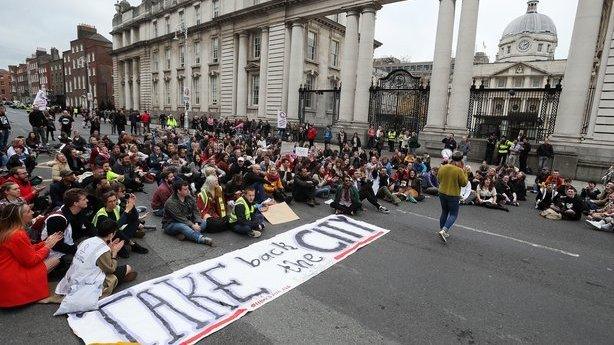Dublin: Cost of living forces people to abandon city
- Published
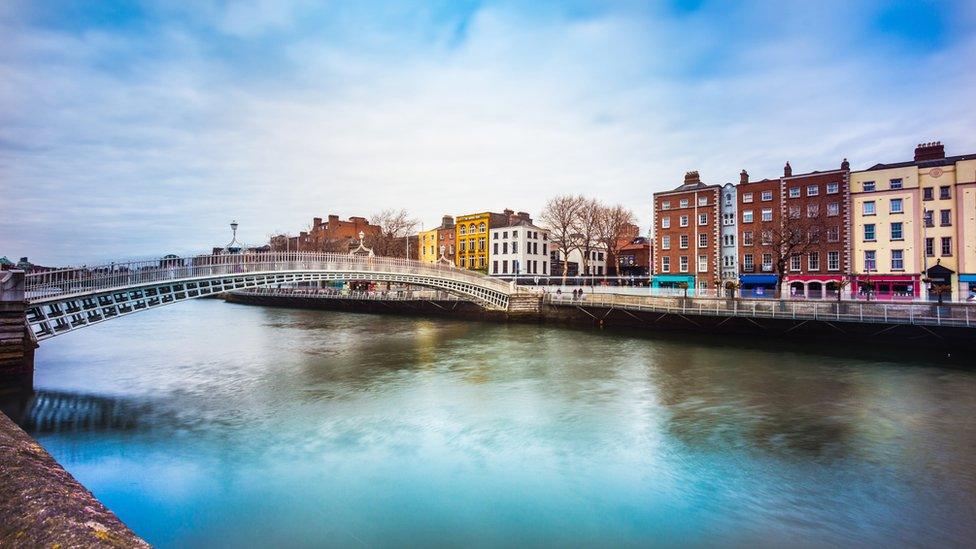
The Republic of Ireland's capital city has a problem - many people just cannot afford to live there.
The average property now costs €2,044 (£1,750) to rent per month. , external
To compare, peak rental prices before the 2008 crash in Dublin city centre never reached more than €1,500.
Feeling the financial pressure, some of the city's residents have chosen to pack up and seek more affordable living elsewhere.
Despite being just a two-hour drive away over a frictionless border, the situation in Belfast could not be more different.
The other capital city on the island of Ireland has some of the lowest living costs and rents in the UK.
Most recent figures from the local Housing Executive found the average rent for a property in Belfast to be £690 (€820) - less than half of that of Dublin.
For Kat Mallaghan, the difference in cost of living means she is willing to endure the harshest of pre-dawn commutes.
The 26-year-old lives in Ligoniel, Belfast with her two children and partner, rising at 02:30 GMT to travel down the A1 for her job as cabin crew with Aer Lingus.
"It's a disaster in some ways, it's a boring old drive," she said.

Kat Mallaghan can find herself making the daily commute from Belfast to Dublin
"I put bids in for long haul, so you are only away for three days.
"But if they have me on a week of early European flights, they could have me up and down the road every day."
Ms Mallaghan lived in Dublin for six months when she started her role in 2014, before moving back north, where she is originally from.
"I have friends now down there paying €1,500 for a one-bedroom - so it's a no brainer," she said.
Ms Mallaghan currently pays around one-third of that figure for her mortgage in Belfast.
How expensive is Dublin?
After a dip following the 2008 global economic crisis, rents in the city first recovered, and then soared out of the reach of many of its would-be inhabitants.
For many in the city, renting means securing a bedroom, or in some cases just a bed, external - and this is still a long way from being the cheap option.
Renting a single room in Dublin's city centre can come at an average monthly cost of €713 (£610).
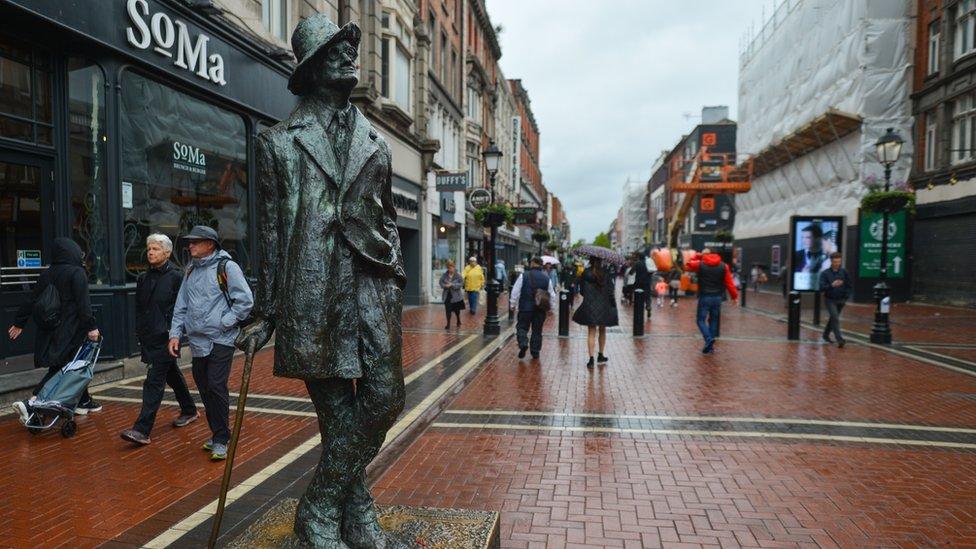
Full-time workers in Dublin can expect to make higher salaries than their Northern Ireland counterparts
However, while rents may be much higher, so are salaries.
The average full-time worker in Northern Ireland takes home just over £27,000, external (€32,000), compared to an average full-time salary of just over €47,000 (£40,000), external in the Republic.
However Claire Morley has the best of both worlds, living in Belfast and earning a Dublin-style salary.
"I am actually on the same money I would have been on in Dublin," she said.
"But with about half the living costs."
Leaving the Republic of Ireland's capital at the end of 2015, the 31-year-old animator was an early victim of the city's escalating housing crisis.

Claire Morley has more money living in Belfast, despite earning a similar amount to what she earned in Dublin
"I feel like I have significantly more money," she said.
"I am able to go, I forgot my lunch today, I can go and buy some lunch.
"I would have been running home in Dublin, it was that tight."
'I was a complete hermit'
Ms Morley said that the cost of living really curtailed her life in Dublin.
"I was a complete hermit, I was going from home to work and from work to home. I was saving every penny I had."
Since loading her car up with her belongings and heading for Belfast, she has secured full-time work in animation.
"I actually have disposable income at the end of the month, and as of earlier this year, I own a house."
Before leaving Dublin, Ms Morley's rent for a room was €650, plus €100 monthly for a car parking space.
The mortgage on her home in the north of Belfast is now considerably less than that.
'The hidden impact is on mental health'
Una Mullally is a journalist with the Irish Times and a cultural commentator, whose work has focused on Dublin's housing crisis.
Part of the reason she sees for emigration out of Dublin is an effort to "claw back some quality of life".
"I think the hidden impact is on people's mental health, the inability to plan," she said.
"That lack of independence - people sharing houses with strangers into their 30s and 40s, and the impact that can have on relationships."
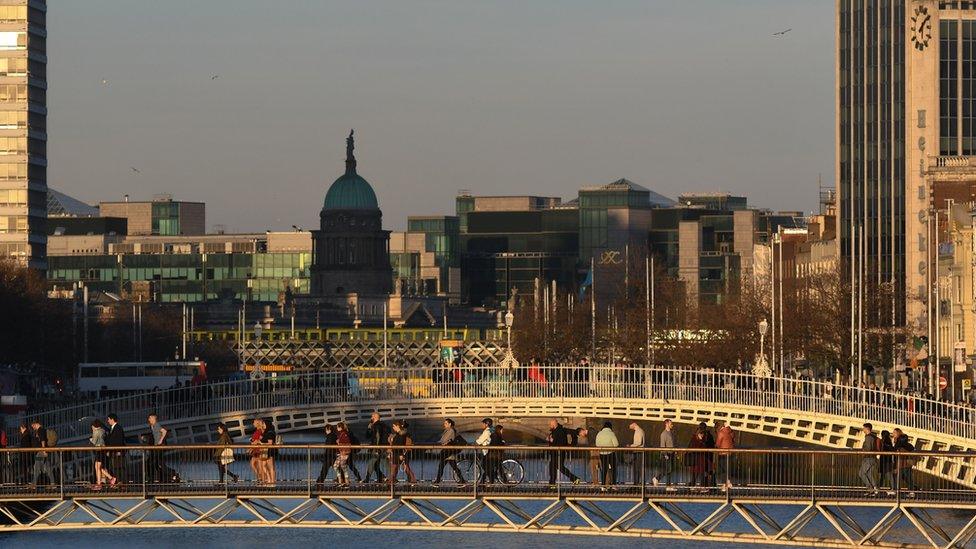
"People who are on middle incomes, people with relatively good jobs are still really cornered and can't find a way to live.
"You are seeing people who survived the recession now leaving the city - because they can't live in the city, it feels like an affront.
"I have a lot of sympathy for people who are leaving."
'You would need to be on €100,000'
For Peter Eastwood, a designer in the tech industry, moving north meant buying property was a possibility.
"A night out in Dublin is about €100 - the guts of €100 - so I would have to pick and chose the weekends I would go out," said the 34-year-old.
From Londonderry, he moved to Dublin after graduating from Glasgow University and not being able to secure work north of the border.
For him, moving to Belfast meant the possibility of buying property.
"Unless you are on big money, that isn't going to happen in Dublin. You would need to be on over €100,000 to even start thinking about saving for a deposit," he said.
Adding he is now on a "decent salary" and that "Belfast is buzzing", Peter said he had not regrets about leaving Dublin.
"I have been to Dublin since, it is less than two hours up and down the motorway.
"But still, I don't think I'll be moving back anytime soon."
- Published23 September 2019
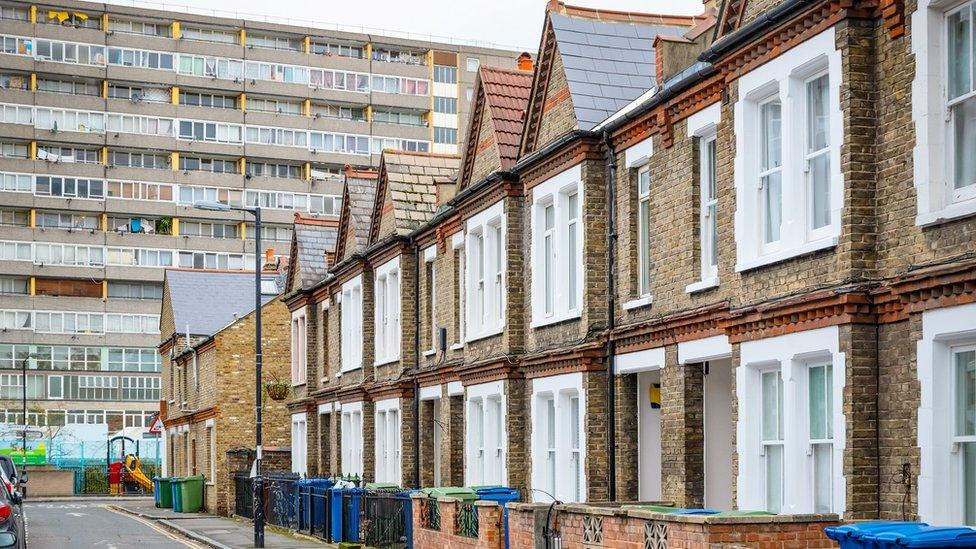
- Published29 October 2018
